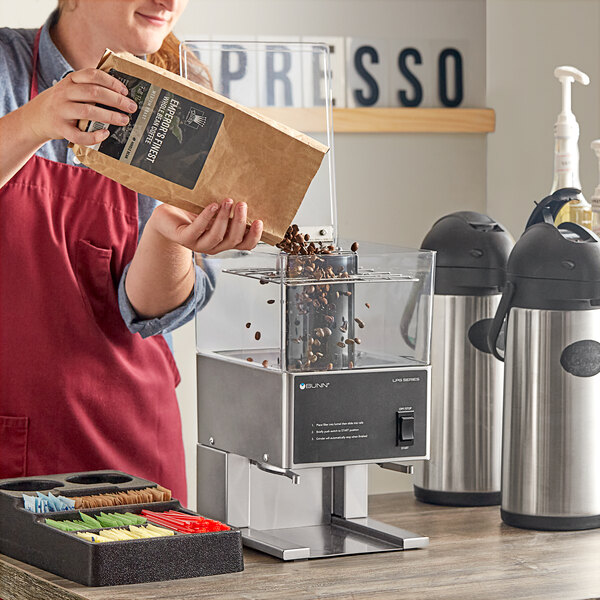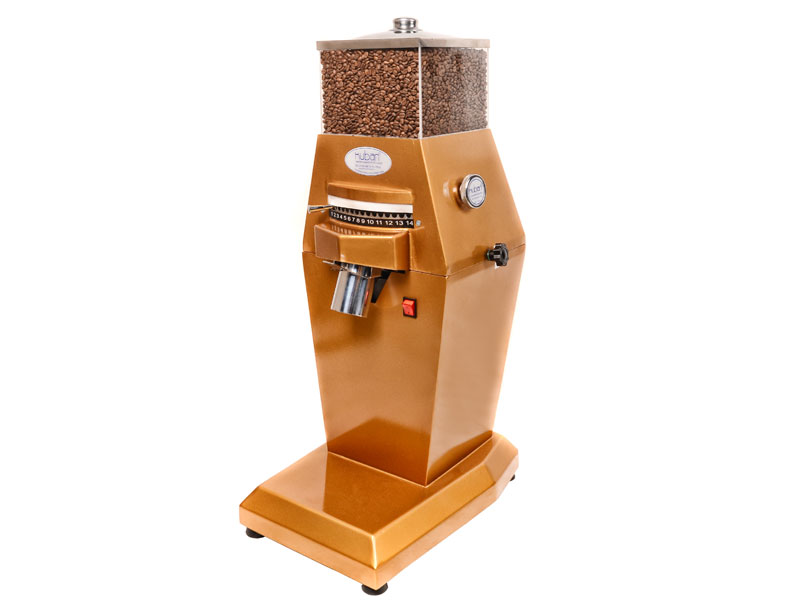Industrial Coffee Grinder for Bulk Coffee Production: What You Need to Know
Industrial Coffee Grinder for Bulk Coffee Production: What You Need to Know
Blog Article
Industrial Coffee Grinder Guide: Boost Performance and High Quality
In the affordable landscape of coffee manufacturing, choosing the ideal commercial coffee grinder plays a critical role in boosting both performance and item top quality. Understanding the nuances of various grinder types and essential attributes-- such as personalized grind setups and durable construction-- can significantly influence the final flavor profile of the coffee. The optimization of the grinding process, combined with persistent maintenance, is necessary for sustaining performance over time. As we discover these critical elements, it comes to be obvious that the effects prolong past mere devices choice, impacting general business success in methods that warrant closer exam.
Comprehending Grinder Kinds
When choosing an industrial coffee mill, recognizing the different kinds readily available is crucial for maximizing both taste extraction and operational performance. The two main kinds of mills are blade mills and burr mills.

Ultimately, selecting the best kind of grinder is essential to preserving quality and effectiveness in coffee production, making it essential for companies to buy top notch burr mills for optimum outcomes.
Key Functions to Consider
Picking an industrial coffee mill requires cautious consideration of a number of crucial attributes that can dramatically influence both performance and the total coffee experience. One of the key elements to examine is the grinding device. Burr mills are typically chosen over blade mills, as they offer a consistent work dimension, which is critical for ideal removal and taste.
One more essential function is the grinder's capacity. A versatile mill with numerous setups permits you to customize the work size to different developing techniques, improving the coffee's flavor account.
The construction product additionally plays a duty in resilience and upkeep. Stainless-steel elements usually offer durability and are simpler to cleanse, which is necessary for preserving hygiene requirements. Finally, evaluate the mill's noise degree, specifically in a busy coffee shop or production setting, where excessive noise can be turbulent. Spending in a grinder that stabilizes these features can considerably improve both operational effectiveness and the top quality of the coffee served.
Optimizing Grinding Refine
To attain the best results in coffee preparation, maximizing the grinding process is crucial. The work size significantly influences extraction, taste, and general quality of the link made coffee. Different developing methods call for details work sizes; for example, coffee demands a great work, while French press requires a coarse structure. Understanding the partnership between work dimension and brewing approach is the first step in optimization.


In addition, checking the grinding speed can enhance the process. Slower grinding typically produces much less warm, maintaining delicate flavors and scents. Alternatively, quicker grinding may produce extreme heat, adversely influencing the coffee's high quality.
Upkeep and Care Tips
Proper maintenance and treatment of industrial coffee mills are important for guaranteeing optimum efficiency and durability. Normal cleansing is the structure of maintenance; residue accumulation can impact flavor and grinding effectiveness. It is a good idea to clean the mill after each usage, cleaning down the exterior and eliminating any kind of coffee grounds from the burrs.
In addition, check the grinding burrs for deterioration. Dull burrs can compromise grind consistency, so they must be changed as essential. Industrial Coffee Grinder. Occasionally calibrating the grinder is also crucial, as this maintains the wanted work dimension for various developing techniques
Lubrication of moving parts should be executed according to the manufacturer's specs, as this minimizes friction and prolongs the life of the devices. It is vital to make use of food-grade lubes to guarantee security and compliance with health and wellness guidelines.
Last but not visit this site least, keep the grinder in a dry and steady environment to prevent corrosion and rust. By adhering to these upkeep and care tips, drivers can boost the effectiveness of their industrial coffee grinders while guaranteeing top quality result and expanded operational life.
Return on Financial Investment Analysis
Evaluating the roi (ROI) for commercial coffee mills is crucial for businesses seeking to enhance their coffee production abilities. A thorough ROI analysis helps identify the economic stability of buying high-grade mills, allowing companies to consider the first prices versus potential gains.
Analyze the acquisition price of the mill, consisting of installation and any type of essential modifications to existing facilities. High-performance grinders often lead to reduced grinding time and raised throughput, which can significantly improve efficiency.
Additionally, take into consideration the effect on item top quality. Industrial Coffee Grinder. Superior mills yield an even more constant work size, which can enhance taste profiles and client contentment, inevitably driving sales. By increasing the high quality of the final item, services can warrant higher rates, leading to raised revenue
Verdict
In recap, a commercial coffee mill plays a crucial role in boosting both performance and item top quality within coffee production. By picking high-grade burr mills geared up with necessary functions such as flexible grind settings and durable building, companies can ensure optimal flavor removal. Normal maintenance is vital for maintaining mill efficiency and maximizing client satisfaction. Eventually, the tactical financial investment in a dependable grinder contributes considerably to enhanced income and competitiveness in the coffee sector.
In the affordable landscape of coffee production, selecting the ideal industrial coffee grinder plays an essential function in improving both efficiency and product quality. The 2 key kinds of grinders are blade mills and burr mills. Within the burr grinder group, there are level burr mills and cone-shaped burr grinders, each with its advantages. Burr grinders are normally preferred over blade mills, as they offer a regular use this link work dimension, which is crucial for ideal removal and taste.
In recap, a commercial coffee mill plays an essential duty in improving both efficiency and item high quality within coffee production.
Report this page